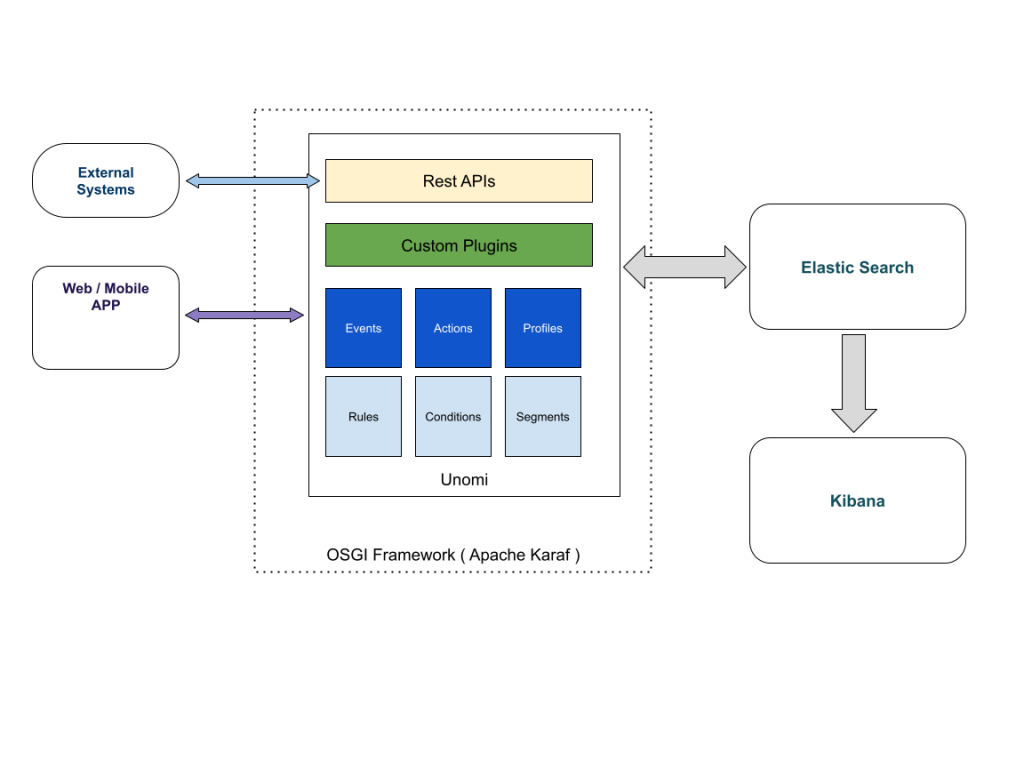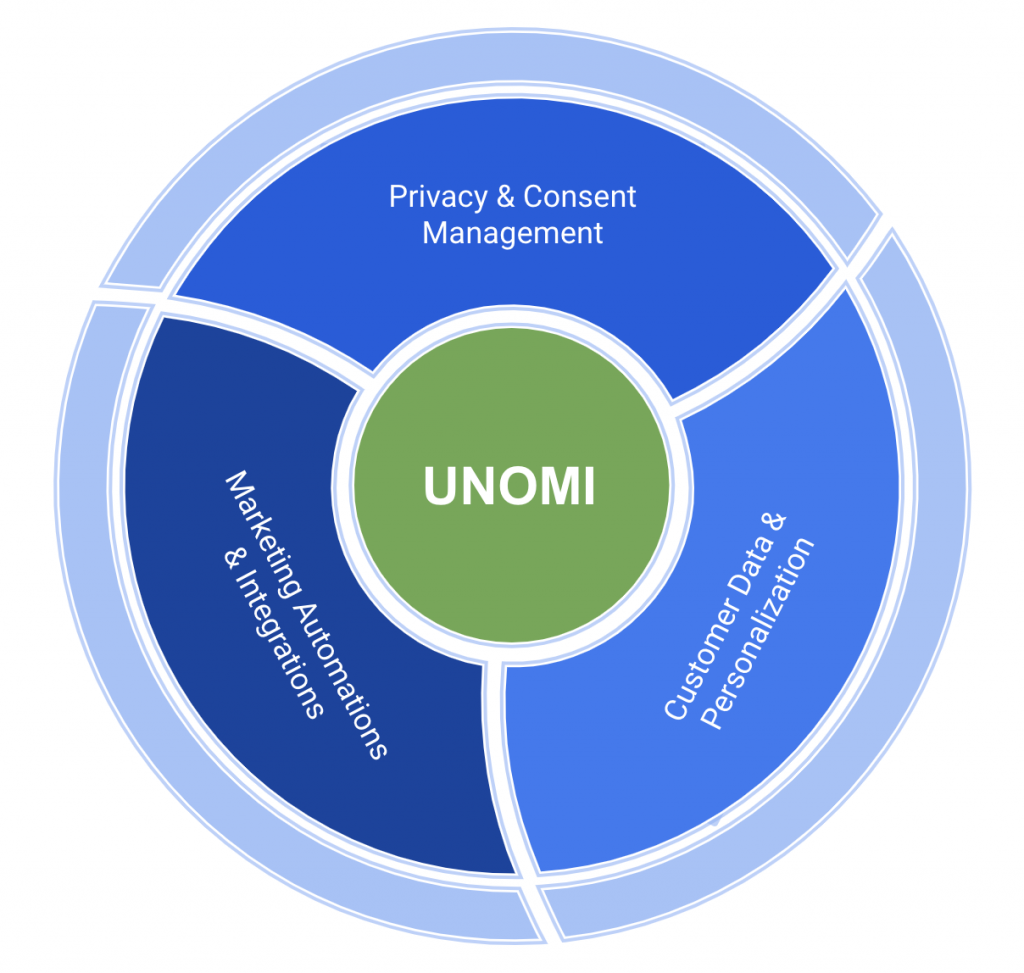Unveiling the world of Unomi
Overview
In the fast-paced digital business world, understanding your customers and providing personalized experiences is essential for success.
Over the last few months, we have been exploring the world of Customer Data Platforms (CDP). During this exploration, the name of the Adobe Experience Platform (AEP) Real-Time Customer Data Platform (RT-CDP), a licensed product of Adobe, caught our attention. However, we were seeking something less expensive and more flexible in terms of customization and integration while still harnessing a CDP’s power. Our research led us to UNOMI (You Know Me).
Apache Unomi stands as a robust Java Open Source customer data platform. Specifically engineered as a Java server, its primary function is managing customer, lead, and visitor data adeptly. With a core focus on enhancing customer experiences, Apache Unomi has features that enable personalization while ensuring strict adherence to visitor privacy regulations, including but not limited to GDPR.

Why Unomi
Unified Customer Profile: Unomi aggregates customer data from diverse sources, such as websites, mobile apps, CRM systems, and third-party applications. This information is then unified into a centralized customer profile, providing a holistic view of each individual.
Rule-Based Personalization: Businesses can define rules and conditions for personalization using Unomi. This includes customizing content, promotions, and recommendations based on a customer’s historical behavior, preferences, or real-time interactions. It can integrate personalization and profile management within different systems, such as CMS, CRMs, Issue Trackers, and native mobile applications.
Scalability and Flexibility: Unomi is designed to scale horizontally, accommodating the growing volume of customer data in today’s digital landscape. It is built as an OSGi application running inside Apache Karaf; it is extremely extensible. Its flexibility allows businesses to customize and extend the platform to meet their specific needs.
Real-time Data Processing: The platform supports real-time data processing, allowing organizations to respond dynamically to customer interactions. This capability is crucial for delivering personalized content and recommendations as customers engage with a company’s digital channels.
Segmentation and Targeting: With Unomi, organizations can create customer segments based on specific criteria, such as behavior, demographics, or preferences. These segments can then tailor marketing campaigns, offers, and content to specific audience groups.
Privacy and Consent Management: Unomi strongly emphasizes privacy and consent management. It helps organizations comply with data protection regulations by allowing customers to control how their data is collected, used, and shared. It Promotes ethical web experience management and increased user privacy controls.

Use Cases
E-commerce Personalization: E-commerce platforms can use Unomi to personalize product recommendations, promotional offers, and content based on customer browsing history, purchase behavior, and preferences.
Content Personalization: Media and content websites can leverage Unomi to deliver personalized articles, videos, and advertisements, increasing user engagement and time spent on the platform.
Marketing Automation: Unomi can be integrated with marketing automation systems to enhance customer journeys, automate personalized communications, and optimize conversion funnels.
Customer Loyalty Programs: Businesses running loyalty programs can use Unomi to identify and reward customer behaviors, preferences, and interactions, contributing to long-term loyalty.
Conclusion
Apache Unomi is a powerful tool for businesses seeking to harness the full potential of their customer data. By unifying customer profiles, enabling real-time processing, and prioritizing privacy, Unomi empowers organizations to deliver personalized experiences that drive customer satisfaction and loyalty. As an open-source solution, it offers flexibility, scalability, and the support of a thriving community, making it a valuable asset for any company looking to stay competitive in the digital age.

